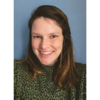How did Temple shape your approach to teaching?
Temple's history department gave me the opportunity to start teaching early on, which was a transformative experience. Although juggling a full course load, teaching, and other responsibilities was challenging, it confirmed my passion for teaching. The students at Temple, many of whom had demanding lives outside of school, taught me to see them as whole people, not just learners in my classroom. This perspective has deeply influenced how I approach teaching now, ensuring that I create practical and meaningful learning experiences for my students.
What were some of the challenges you faced during your graduate studies?
Graduate school is demanding, and my time at Temple was no exception. Balancing a full course load, teaching responsibilities, comprehensive exams, and research was tough, and the financial strain that comes with academia added to the challenge. I had a baby during my final year, so I finished the dissertation with a two-month-old laying on me. But it taught me that if I can do that, I can figure out how to do anything.
How did you build your community at Temple?
My community at Temple was rooted in the history department. It’s really an amazing place, where I found supportive peers and mentors. I think grad students are often each other's best resource. I had a few older students who took me under their wing and always came around to see how I was doing. When I got a little further along in the program, I made sure to pass that on and try to actively support newer students. TUGSA is another layer of support that not all graduate students receive, and the 2023 strike really solidified our bonds. These experiences underscored the importance of connecting with others in and outside of my cohort, learning from those ahead of me, and supporting those coming up.
What advice would you give to someone considering graduate school?
Finding the right advisor can make or break your experience, so find someone you want to work with. Once you're in, finding your community is crucial. Connect with your cohort, but don't hesitate to reach out to those who are ahead of you in the program. If your cohort is small, as some have been in recent years at Temple, building connections across different years becomes even more important. And as you advance, take the time to welcome and support newer students—building a strong community is key to thriving in grad school.


